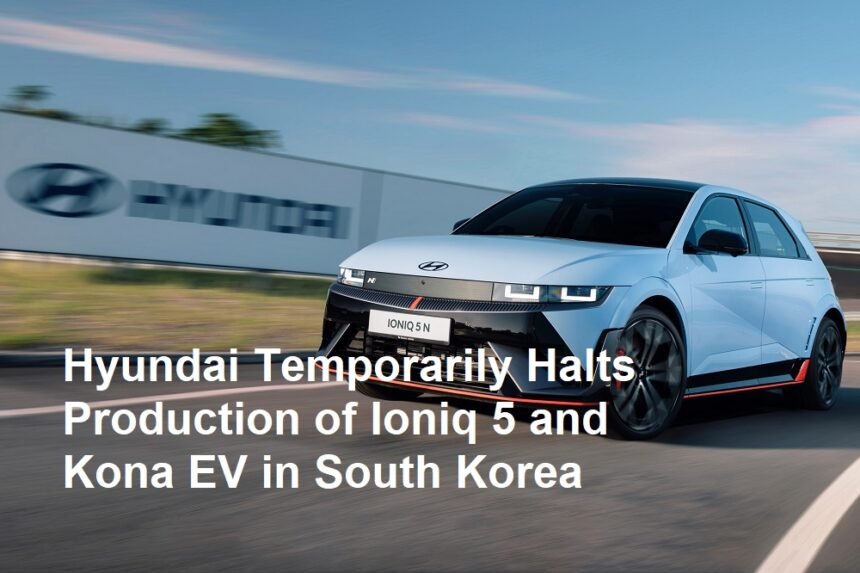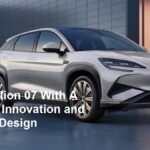In a surprising move that has sent ripples throughout the automotive industry, Hyundai Motor Company has announced a temporary halt in the production of its popular electric models, the Ioniq 5 and Kona EV, at its South Korean manufacturing plants. The decision, made amid ongoing supply chain challenges and strategic realignments, underscores the volatile landscape facing automakers in the current global market.
The production stoppage, which is expected to last for several weeks, is primarily attributed to disruptions in the supply chain. Hyundai has been grappling with shortages in critical components such as semiconductors and specialized battery materials. These shortages have not only affected production volumes across the automotive sector worldwide but have also compelled manufacturers to reassess their operational strategies. By pausing production temporarily, Hyundai aims to stabilize its supply chain and ensure that when production resumes, it can meet the high-quality standards that the brand is known for.
In an official statement, Hyundai cited the need for a “comprehensive review of its production process” as a driving factor behind the decision. The company emphasized that the halt is a precautionary measure designed to address the cascading effects of component shortages and to allow for necessary adjustments in its manufacturing protocols. While the exact duration of the stoppage has not been disclosed, insiders suggest that this move is part of a broader strategy to realign production schedules with the availability of parts and to mitigate future disruptions.
The impact of this temporary halt is expected to be felt across various segments. For one, employees at Hyundai’s South Korean facilities are bracing for short-term changes in their work schedules. The production stoppage may result in reduced shifts or temporary reassignments, although Hyundai has assured its workforce that efforts are underway to minimize any adverse effects. Additionally, the halt could lead to delays in deliveries for both domestic and international markets, potentially affecting customer wait times for the Ioniq 5 and Kona EV—models that have rapidly become favorites among electric vehicle enthusiasts.
Market analysts view Hyundai’s decision as a proactive step rather than a reactive measure. “In today’s unpredictable supply chain environment, a strategic pause can be beneficial in the long run,” commented one industry expert. “Hyundai is using this period to streamline its processes and secure the necessary components, which could ultimately lead to a more resilient production line.” The decision also reflects the broader challenges faced by the automotive industry, where companies worldwide are battling shortages of semiconductors, battery materials, and other vital components.
This pause in production comes at a critical time for Hyundai’s electric vehicle lineup. The Ioniq 5 and Kona EV have not only boosted the company’s profile in the competitive EV market but have also played a significant role in Hyundai’s push towards a greener future. Despite the temporary setback, Hyundai remains committed to its electric mobility vision. Company executives have reiterated that this production pause is strictly a short-term measure and that plans to expand and upgrade their electric vehicle offerings will continue unabated once the supply chain stabilizes.
Looking ahead, Hyundai plans to leverage this period to retool certain aspects of its manufacturing process. The company is reportedly exploring opportunities to integrate more advanced production technologies and enhance its quality control measures, ensuring that the eventual return to production is both swift and efficient. This strategic move may well serve as a blueprint for how other automakers handle similar disruptions in the future.
In conclusion, while Hyundai’s temporary halt in the production of the Ioniq 5 and Kona EV in South Korea may raise short-term concerns among customers and stakeholders, it is a calculated decision aimed at fortifying the company’s long-term operational resilience. By addressing supply chain issues head-on and realigning production strategies, Hyundai is positioning itself to continue its leadership in the electric vehicle market, ensuring that quality and innovation remain at the forefront of its mission.













